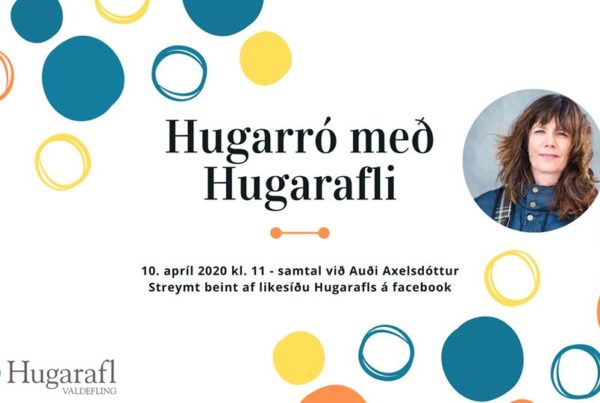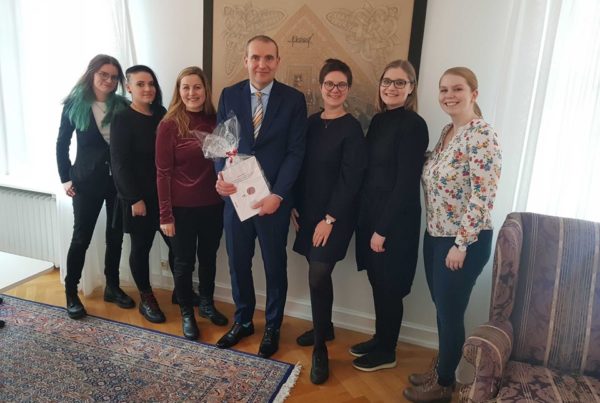Zoloft, Rivotril, Sertral, Amilin, Seroquel, Efexor, Cipralex, Lyrica, Fontex, Sobril, Stesolid, Stilnoct, Lexotan, Fluoxetin, Phenergan, Wellbutrin.
These are the psychiatric medications that I was prescribed, bought and ate for a 5 year period. I was 17 when I started – and 22 when I got out. My name is Svava Arnardóttir and I want to tell you about my personal experience with the Icelandic mental health system. I am not here to tell you to stop taking psychiatric medication – I simply want us all to be informed consumers, to have the power to make decisions and choose between many different choices. I ask you to keep an open mind and open ears.
I was 17 in 2005. I was in junior college, had been fully committed in sports and was an overachiever in school. I started having difficulty catching my breath when working out, and sometimes in school. I thought I had exertion asthma but hadn‘t gone to the doctor. Then one evening, I was at home with my family watching TV. I meant to be relaxing after a long day but instead I couldn‘t breathe. It felt like I was choking. I couldn‘t get oxygen. I ended up being taken to the ER – where it turned out I wasn‘t dying, there was nothing wrong with my body, it was all in my head! I had had a severe panic attack. I went to my doctor and was prescribed my first psychiatric medication. I was told I had a chemical imbalance in my brain. I was told I would never recover, but by taking the medication, I could hope to feel a little better. I completely bought into this idea of brain chemistry. I was an obedient, good patient – did everything my doctor told me.
Turns out the medicine didn‘t work well for me. I continued feeling worse and worse. The response was to give me more medication and to try other brands and types. Still I continued feeling worse. Then we increased the dosage. Then we added other medication. We took some out, we added a few more in. I had all sorts of side effects. I got migraines and horrible lifelike nightmares. My short term memory was out. I had difficulty concentrating. My mouth made so little saliva that my enamel was wearing out and I had to get extensive dental work. I had never gotten a tooth decay before in my life! My eye sight changed rapidly, from -3 to -4, -5, -6. My eye doctor looked at my medication and immediately wanted me off three of them – they were all known to have side effects changing the structure of the actual eye! I was a changed person, a shell of my former self. I so sincerely wanted help and I tried everything I was suggested.
I went in total agony to a psychiatrist and begged for help. I was on a lot of medication and nothing seemed to work. He decided to add a few new ones to the mix – all at once – in the hopes of something working. He actually said – and I quote – „let‘s try the shotgun method“ – meaning that you load the gun with a bunch of pellets and hope that one of them hits the target.
I ended up in the mental hospital. The focus there was still only on medicine. I wasn‘t pointed towards what ended up saving my life. I simply found some fliers for Hugarafl and for Hlutverkasetur lying around, and booked introduction visits by my own initiative. I was always seeking help and trying for a better life.
I found the keys to my recovery through the work at Hugarafl. I was told there was still hope. People believed in me and that I could recover, even when I had no hope. I found my voice, I started feeling empowered, finding that I could make a difference. I had been through 16 different psychiatric medications in 5 years – and they were not the right choice for me. Some might have helped, for a short while, like a bandaid or a crutch – but they didn‘t fix the underlying causes.
My experience of the Icelandic mental health system is recent. And it is real. I went to a doctor at 17 and asked for help in any way possible. I was anxious, I was depressed, I had panic attacks. I got a lot of medicine – and very little else.
Let‘s put this into a context we can all easily relate to. Imagine that you go to a doctor because your knee hurts. The doctor looks at the knee, bends it a little, confirms the pain, and then gives you a prescription for ibufen and paracetamol with codein – parkódín. He tells you that this pain is here to stay, but by taking ibufen and parkodin three times a day for the rest of your life – you might feel a little better.
We would NEVER, ever, accept this sort of health system. Why should it be different for mental health?
In real life, the doctor would maybe prescribe you some ibufen to take down the inflammation for now – but he would do a lot more. He would tell you to go to the physiotherapist. He would tell you about a bandage around the knee. Maybe a different way of standing, or a different insole for your shoes. Maybe he‘d suggest changing sports, from jumping around in basketball to practising yoga.
This is the same for mental health. There are many ways to treat mental difficulties, and many ways to work on our mental health. There are so many options out there that you can choose from. You might like cognitive behavioural therapy, or acceptance commitment therapy. You might want to look into eye movement desensitization and reprocessing therapy. Or mindfulness. Relaxation. Imagery. Working with the family. Working on past experiences and traumas. Yoga. Exercise in general. Nutrition. Basically talking to people and working through the situtation. Medication might be one of these tools. It might not.
I know that my doctors did the best that they thought they could. I was in crisis – and they wanted to help. I want us to learn something from my difficult experience. Medicine should never be the main therapy provided. It might work and be helpful alongside something else – but we really need to start talking openly about everything that is on offer. Medicine – like EVERYTHING else – has its pros and cons. Let‘s talk about them. Let‘s lay it all on the table and give the power to the individual to choose from a variety of options. It is their life after all.
Finally – I want you to find hope in my story. This is a story of serious mental illness, and it is a story of recovery. Even when the outlook is bleak and the night is dark – there is something to look forward to. We can recover, and we must be given all the options and tools to do so.
Reynslusaga Svövu Arnardóttur flutt á ráðstefnu Hugarafls 11. maí 2017










